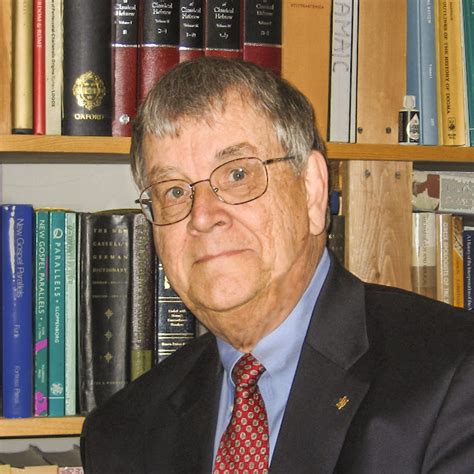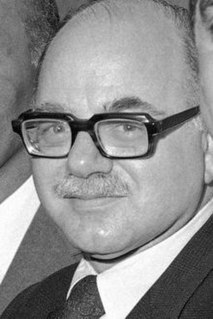A Quote by Michael Shermer
When religious believers invoke miracles and acts of creation ex nihilo, that is the end of the search for them, whereas for scientists, the identification of such mysteries is only the beginning. Science picks up where theology leaves off.
Related Quotes
Since religion intrinsically rejects empirical methods, there should never be any attempt to reconcile scientific theories with religion. An infinitely old universe, always evolving, may not be compatible with the Book of Genesis. However, religions such as Buddhism get along without having any explicit creation mythology and are in no way contradicted by a universe without a beginning or end. Creatio ex nihilo, even as religious doctrine, only dates to around AD 200. The key is not to confuse myth and empirical results, or religion and science.
Theology differs from science in many respects, because of its different subject matter, a personal God who cannot be put to the test in the way that the impersonal physical world can be subjected to experimental enquiry. Yet science and theology have this in common, that each can be, and should be defended as being investigations of what is, the search for increasing verisimilitude in our understanding of reality.
The tragic evils of our life are so commonly unintentional. We did not start out for that poor, cheap goal. That aim was not in our minds at all....Look to the road you are walking on. He who picks up one end of [a] stick picks up the other.He who chooses the beginning of a road chooses the place it leads to.
Real scientists are required to play by the rules without exception. Creationists follow the rules of science only so long as it is expedient. Then they resort to miracles. But resorting to miracles is not offering an explanation: it is asserting that no real explanation exists. Whenever creationists resort to miracles, they are admitting that their system cannot account for the facts of nature; it cannot explain the world.
The mere man of pleasure is miserable in old age, and the mere drudge in business is but little better, whereas, natural philosophy, mathematical and mechanical science, are a continual source of tranquil pleasure, and in spite of the gloomy dogmas of priests and of superstition, the study of these things is the true theology; it teaches man to know and admire the Creator, for the principles of science are in the creation, and are unchangeable and of divine origin.
Oh, that's typical of you modern young men; you've nibbled at science and it's made you ill, because you've not been able to satisfy that old craving for the absolute that you absorbed in your nurseries. You'd like science to give you all the answers at one go, whereas we're only just beginning to understand it, and it'll probably never be anything but an eternal quest. And so you repudiate science, you fall back on religion, and religion won't have you any more. Then you relapse into pessimism...Yes, it's the disease of our age, of the end of the century: you're all inverted Werthers.




































